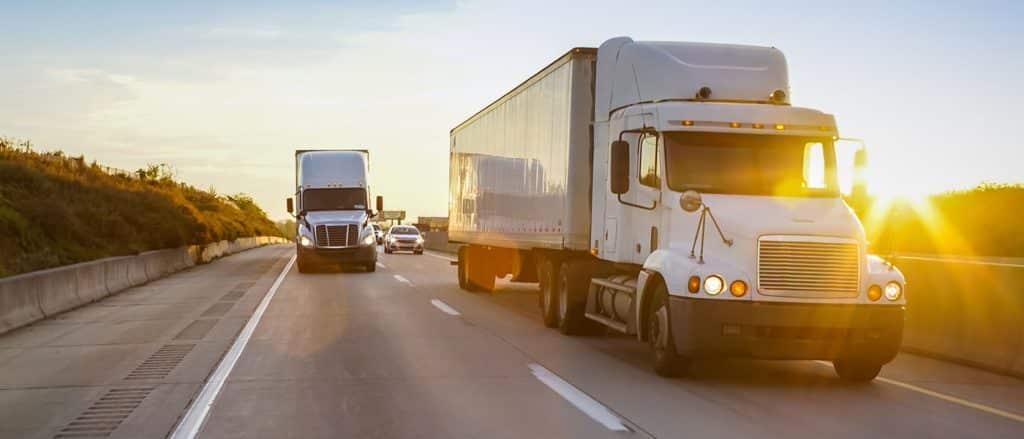Introduction
Across industries from agriculture and logistics to buildings and mining, the weight of a truck is more than just a figure; it’s a vital piece of information that informs business. For decades, businesses have been using manual weighbridges and piles of paper tickets. It works, sure, but slowly, often in error, and sometimes with scope for manipulation.
Enter truck scale software. It’s not just a technological upgrade, but simplifies the entire process, transforming what was once a laborious, error-filled task into an automated, trustworthy workflow. Weighing, ticketing, and data integration all occur smoothly, providing businesses with real-time intelligence and minimizing operational hassles.
If you’ve ever wondered why more companies are making the switch, this is your roadmap.
What is Truck Scale Software?
Truck scale software is an electronic system utilized in the management, recording, and automation of weighing trucks. Instead of manual entries or paper tickets, it automates the whole process from weighing a truck on a scale through to printing out a ticket, retaining daily record, and passing it into logistics or accounting systems.
This technology proves to be most useful in business where bulk materials are transferred on a daily basis. Whether grain in farming, gravel in building, or minerals in mining, truck scale software provides accuracy and dependability.
How Truck Scale Software Functions
The methodology behind truck scale software is quite simple but very effective:
- Truck reaches the scale: The truck drives onto the weighbridge.
- Automated weighing: The software captures the gross, tare, or net weight of the truck through sensors and in-built weighing equipment.
- Ticket generation: In the case of truck scale ticketing software, the system produces a digital ticket in real-time. This involves information such as date, time, vehicle number, weight, and product details.
- Data storage: All information is stored safely in cloud or on-premises databases.
- Integration with ERP/Accounting systems: Companies can integrate weighing data directly to invoicing, inventory, and fleet management software.
Key Features of Truck Scale Software
Contemporary truck scale systems do much more than just simple weighing. Below are the most significant features described in detail:
1. Automated Ticketing
Rather than writing tickets by hand, operators print or send electronic tickets straight out. This reduces the time per truck and removes duplication. Some programs even send tickets to customers via email immediately.
2. Real-Time Data Capture
The instant a truck is weighed, the report is on hand for managers at any location. This supports real-time decision-making, including rerouting trucks according to capacity.
3. Hardware & IoT Integration
Truck scale software interoperates with RFID readers, security cameras, boom barriers, and IoT sensors. To illustrate, cameras can take the license plate of the truck when weighing and associate it with the electronic ticket.
4. Prevention of fraud
Fraudulent weighing is prevalent, operators who fiddle with figures or drivers who re-use tickets. Software with user authentication and RFID makes data tamper-proof.
5. Cloud Dashboards
Executives are able to log into phone or laptop dashboards to monitor site performance, truck movement, and weight trends.
6. Custom Reporting
Companies are able to create reports by driver, material, date, or truck. This is vital for compliance audits and financial reconciliations.
7. Compatibility with Existing Equipment
Truck weighing software is mostly made to work with existing weighbridges, without the necessity for new hardware investment.
Advantages of Truck Scale Software
Implementing truck scale software revolutionizes operations in the following ways:
1. Accuracy and Equity
Human mistakes becomes nonexistent. For instance, in farming, farmers can rely on their produce being weighed equally, avertive of conflicts.
2. Reducing Fraud
With digitalization and tamper-proofing of records, fraud attempts such as ticket duplication or alteration of weight are eliminated.
3. Increased Throughput
A truck that previously took 10 minutes to weigh and ticket now takes less than 3 minutes, making queues at busy weighbridges smaller.
4. Compliance
Strict weight laws are implemented in most areas. Digital tickets and timestamped records make it easy for companies to demonstrate compliance when inspected.
5. Cost Savings
Take the example of a grain co-op that handles 1,000 trucks every month. Saving 5 minutes per truck amounts to more than 80 hours of labor saved every month. Include fraud reduction, and the cost savings are even higher.
6. Data-Driven Insights
Truck scale data can uncover inefficiencies:
- Which trucks are not being used as much as they could be?
- Which routes experience repeated delays?
- What materials have seasonal spikes?
Reporting allows managers to transition from reactive to proactive decision-making.
Truck Scale Ticketing Software: Why It Matters
Conventional weighbridge ticketing has ordinarily employed handwritten or carbon-copy paper slips. Though straightforward, they are quite easy to lose, destroy, or even manipulate and result in inconsistencies between buyers and sellers. In an industry where every kilogram counts, paper usage is inefficient and also risky.
This is why it’s important:
Centralized Records: All tickets are stored on a secure database accessible from various locations. Managers no longer need to search through paper records. Instead, they have the complete history of all transactions at their fingertips.
Fast Retrieval & Audits: Whether it’s an inquiry from a customer or an audit check, historical weigh tickets can be retrieved in seconds. This makes it easy to settle disputes and stay ready for audits.
Seamless Accounting Integration: Electronic tickets can be posted automatically to ERP or accounting packages, eliminating double entry. This not only saves time but also reduces the likelihood of billing and inventory matching errors.
Consistency Across Sites: For businesses with several depots, mines, or factories, ticketing software gives the same procedures in all sites. All sites have the same electronic process, which makes reporting and control far more consistent.
By replacing breakable paper slips with secure, trackable digital tickets, companies gain transparency, velocity, and control, essential to building trust with partners and maximizing operating efficiency.
Truck Weighing Software for Logistics & Supply Chain
The application of truck weighing software reaches beyond industries:
Agriculture
Farmers and cooperatives employ truck scale systems to provide equitable trade and precise grain deliveries. With AgriChain’s digital offerings, weighing becomes fully integrated into supply chain management.
Mining & Construction
Weight compliance is important in heavy industry for productivity and safety. Truck weighing software prevents trucks from being overloaded or underloaded.
Manufacturing & Bulk Material Handling
From cement to chemical, manufacturers depend on accurate weighing to ensure product quality and uninterrupted supply chains.
How to Select the Right Truck Scale Software
The correct truck scale software is an investment that will last for many years, so it makes sense to focus on a few important considerations:
Scalability: The software should grow with your business. Whether you’re running one weighbridge or many across multiple sites, the system must handle higher transaction volumes and user access without performance issues.
Cloud vs On-Premise: Cloud solutions are appropriate for firms that need mobility and simple scaling, whereas on-premise is appropriate for sectors that need strong data security or limited internet access.
Ease of Use: Simple, easy-to-understand software ensures quick adoption by operators and minimizes training requirements. In case the system is overly complex, it will ruin operations.
Security & Compliance: Select software with robust encryption, audit trails, and user authentication. Compliance with industry standards ensures your records are accurate, tamper-evident, and audit-ready.
Vendor Support: More than the technology, there has to be trustworthy support. A good vendor must offer training, routine updates, and quick troubleshooting so your operations aren’t placed on downtime.
Implementing Best Practices
Rolling out truck scale software is not simply about installing software; it’s about transforming the way an organization deals with key operating information. Properly planned deployment minimizes disruption and maximizes ROI.
Training Staff
Your clerks, managers, drivers, and operators will all require training in the new system. Create formal training programs that include hands-on training, user guides, and video instructions. Regular refresher courses enable new personnel to get up to speed quickly.
Data Migration
Shifting from paper logbooks or old systems to electronics involves meticulous migrating of legacy data. Inaccurate or incomplete migration can leave gaps that impact audits and compliance. The vendor should be able to give clean, structured migration tools and support.
Pilot Testing
Before implementing over many sites, pilot at one location. This enables you to pinpoint bottlenecks, verify integration with existing systems, and get user feedback. Lessons learned in the pilot can then be used to make the rollout over the bulk of sites safer.
Ongoing Updates & Maintenance
Technology does not stand still. Periodic updates introduce new functionality, fix holes in security, and enhance interoperability. Companies need to plan for routine audits of both hardware (scales, sensors) and software to ensure conformity. Having a vendor who is actively developing the product guarantees your system remains future-proof.
Change Management
One of the neglected areas is resistance to change. Employees used to traditional processes might be resistant to embracing digital alternatives. Proper communication regarding the advantages, speed, accuracy, less workloads, along with management acceptance breaks through this hurdle.
Top Truck Scale Software Providers in 2025
Selecting the best provider can be daunting, with dozens of providers to choose from. To make it easier, here’s a list of the top truck scale software providers that companies in agriculture, logistics, and heavy industries have faith in.
AgriChain: Best for Agriculture & Supply Chain
AgriChain provides a feature-rich truck scale software platform designed exclusively for agriculture and bulk goods supply chains.
Rice Lake Weighing Systems
Reputed for precision scales and weighing devices, Rice Lake also offers software that integrates well with its hardware. Suitable for those businesses searching for hardy hardware-software combinations.
Avery Weigh-Tronix
Established brand with weighbridge hardware and management software solutions. Strong industry presence in mining, construction, and agriculture sectors.
Fairbanks Scales
Over a century of experience in weighing systems, Fairbanks provides durable truck scale software with RFID integration and superior reporting.
Weightron Bilanciai
Specializes in smart weighbridge solutions with robust analytics and custom reporting, widely used in logistics and manufacturing.
Cardinal Scale
Provides flexible truck weighing and ticketing software that is ideal for mid-sized operations seeking simple installation and quality support.
Scaleit USA
Famous for software specifically designed for recycling centers, waste management, and scrap yards, with advanced modules for material tracking.
Transact Weighing Solutions
Offers scalable weighbridge software with superior ERP integration, ideal for automation-focused and real-time reporting-oriented businesses.
Smartsys Weighing Software
An emerging vendor with cloud-first truck scale software, best for organizations operating multiple locations requiring centralized management and rapid deployments.
The coming decade will change truck scale software from being a utility tool to a strategic force. A number of developing technologies are coming together to change the way companies weigh, monitor, and optimize logistics.
AI & Predictive Analytics
AI can examine past weight readings to predict demand, detect inefficiencies, and raise alarms about anomalies. For instance, when a truck repeatedly reports weights lower than anticipated, AI can identify possible underloading or fraud. Predictive models assist firms in scheduling fleet utilization on the basis of seasonal patterns to minimize idle time and maximize ROI.
IoT Integration
The Internet of Things (IoT) is revolutionizing truck scales by using smart sensors and networked devices. Imagine weighbridges that automatically report data to central dashboards, boom barriers that open for checked cars but not for others, or sensors that alert when vehicles cross safe weights. IoT connects everything and makes the entire process automatic.
Mobile-First Solutions
With mobile apps, managers don’t have to physically be at weighbridges. Transactions can be approved remotely, live dashboards viewed remotely, and even digital tickets sent straight to drivers’ phones. For business with multiple sites, mobile-first solutions mean one source of truth accessible anywhere, anytime.
The Road Ahead
While the world’s supply chains go digital, regulatory requirements become stricter, and industries turn to automation, truck scale software will no longer be merely a weighing device. It will be a strategic facilitator for:
- End-to-end supply chain visibility
- Smooth financial reconciliation
- Improved safety and compliance
- Increased trust between buyers and sellers
Simply put, the future isn’t only about weighing trucks—it’s about making weighbridges intelligent data hubs that enable smarter business decisions.
Conclusion
For companies dealing with bulk products, accuracy and speed of weighing directly affect profitability. Truck scale software, truck scale ticketing software, and truck weighing software convert old-fashioned manual functions to integrated, digital processes.
From agriculture to construction industries, firms that implement such systems are rewarded with greater accuracy, lower fraud, quicker operations, and wiser decision-making.
The future is now, as sectors go digital, truck scale software will be a foundation for effective supply chain and logistics operations.











